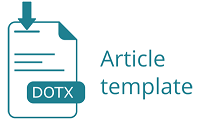PROGRAM EDUKASI KESEHATAN DISABILITAS DI POSKO RESCUE BELA NEGARA
DOI:
https://doi.org/10.32807/jpms.v6i2.1715Keywords:
Health Education, Disability, PHBS, BLSAbstract
The "Disability Health Education" program was implemented by Politeknik Kesehatan Kemenkes Malang at Posko Rescue Bela Negara, Karangduren, Pakisaji, Malang, May 23-25, 2024. The background of this program is to address the challenge of limited access to adequate health services for people with disabilities, who often face various obstacles in obtaining sufficient health education. The program aims to enhance knowledge and skills in five key areas: Clean and Healthy Living Behavior (PHBS), healthy food, personal hygiene, basic life support, and emergency management.
The methods used included lectures, discussions, demonstrations, and hands-on practice. A total of 32 participants with disabilities participated in this program, accompanied by 10 students from the Applied Bachelor of Health Promotion, D-3 Health Insurance and the D-3 Medical Records and Health Information programs as facilitators.
The effectiveness of the program was evaluated through pre-tests and post-tests to measure the increase in knowledge and skills of the participants before and after attending the program.The evaluation results showed a significant increase in the average post-test scores compared to the pre-test scores for all the taught materials. The frequency distribution of scores indicated an increase in the homogeneity of understanding among participants after attending the program. Descriptive statistical analysis showed that the average pre-test scores ranged from 6.25 to 6.69, while the average post-test scores increased to 8.12 to 8.19. The decrease in standard deviation in most materials indicated a more homogeneous distribution of scores after the program.
In conclusion, the "Disability Health Education" program successfully improved the participants' health knowledge and skills significantly. Active participation and positive feedback from participants demonstrated the effectiveness of the teaching methods used. This program can serve as a model for similar health education programs in the future to provide broader benefits for the community of people with disabilities.
Downloads
Published
How to Cite
Issue
Section
License
Copyright (c) 2025 Jurnal Pengabdian Masyarakat Sasambo

This work is licensed under a Creative Commons Attribution-NonCommercial 4.0 International License.
Copyright Notice
The author who submits the manuscript does so with the understanding that if accepted for publication, the copyright of the article will be submitted to the Jurnal Kesehatan Prima Unit Research and Community of Polytechnic of Mataram as the publisher of the journal.
Copyright includes the exclusive right to reproduce and transmit this article in all forms and media, including reprints, photographs, microfilms, and other similar reproductions, as well as its translations. Reproduction of any part of this journal, its storage in the database and its transmissions by any form or media, such as electronic, electrostatic and mechanical copies, photocopies, recordings, magnetic media, etc. shall be permitted only by written permission of the Jurnal Kesehatan Prima Unit Research and Community of Polytechnic of Mataram.
The Jurnal Kesehatan Prima Unit Research and Community of Polytechnic of Mataram, Editor In Chief and Team Editor strive to ensure that no data or statements are false or misleading, published or published. in the journal.
Â
Â
Every accepted manuscript should be accompanied by "Copyright Transfer Agreement" prior to the article publication.
Â





